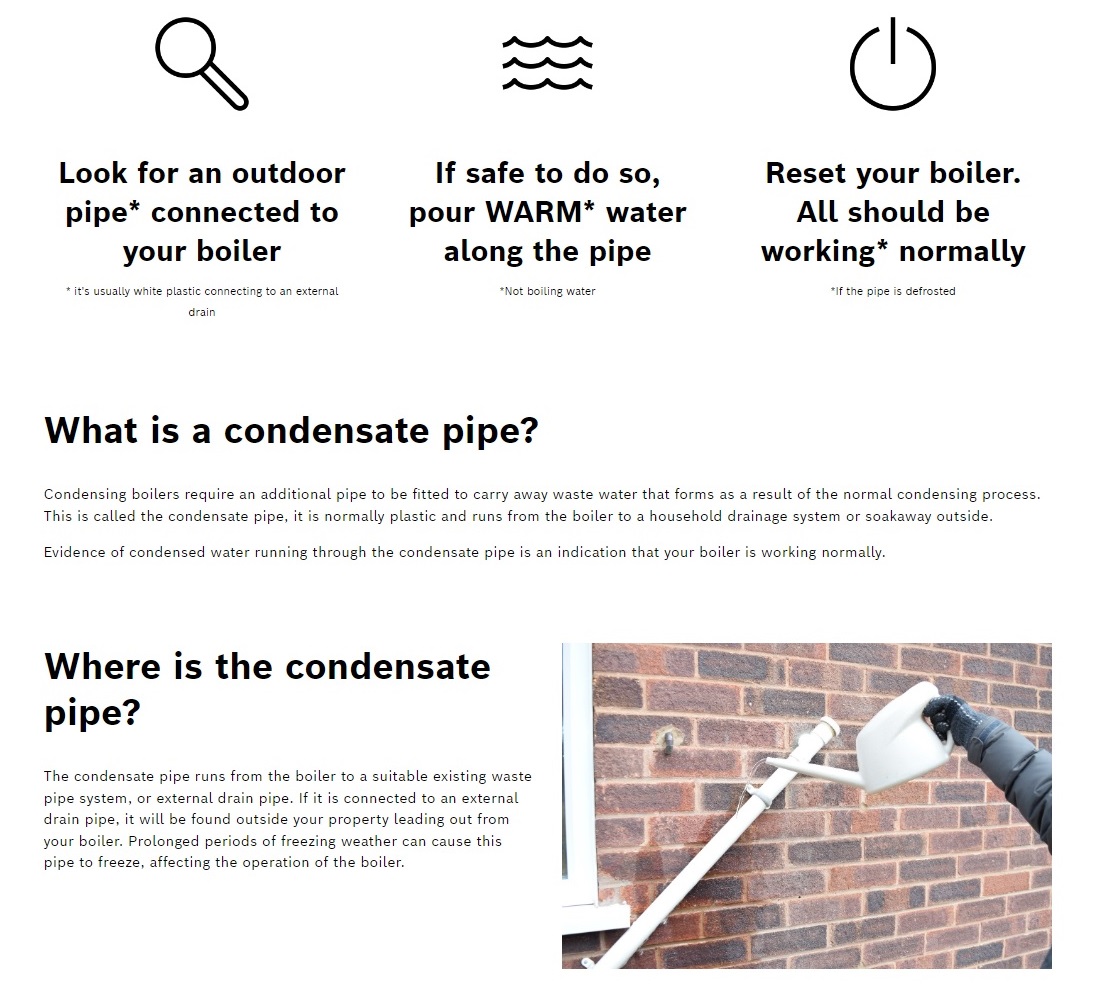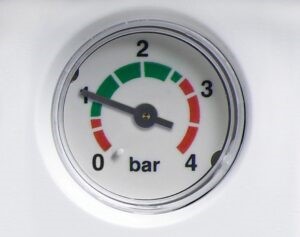Are you experiencing Frozen Condense Pipes on the outside of your property during this cold snap..!
Please use the link below to help provide you with some advice to overcome this problem this winter.

Boilers are sensitive to pressure issues — they can lock out when they lose too much pressure, or when the boiler pressure is too high. So, if you’re wondering what should the boiler pressure be, please read the below advice for the the ideal boiler pressure when the appliance is hot, cold, the optimal working pressure, and how to spot a problem.
It doesn’t matter whether you have a Worcester, Vaillant, Ideal, Baxi or other brand of boiler — the correct boiler pressure is similar across various brands and models...
What pressure should my boiler be when it’s cold?
The normal boiler pressure when the central heating system has cold water should be between 1 and 1.5 bar. Most manufacturers recommend an optimal system pressure of 1.3 bar .
That said, if you’re asking yourself “What should the boiler pressure be when the heating is off?”, the best thing to do is refer to your boiler manual — the recommendations may differ between manufacturers.
Should a boiler increase in pressure as it heats up?
The answer is yes, your boiler pressure increases as the central heating system water heats up. You can monitor this increase by looking at the boiler’s pressure gauge dial, which is usually located on the boiler display panel (or just below the boiler casing on some older boilers, such as Ferrolis).
What pressure should my boiler be at when it’s hot?
Generally, it’s completely normal if the boiler bar pressure rises by around 0.3-0.5 bar when the heating is on. So, the ideal boiler pressure should be in the 1.5-1.8 bar range when the water is hot.
Why does the water pressure gauge increase when the heating is on?
The pressure on your boiler’s gauge will increase when the heating is on. This surge in operating pressure is caused by water expansion, which occurs naturally as the boiler heats water circulating through the pipes, radiators, and towel rails.
That said, your boiler pressure rise shouldn’t amount to more than 1 bar during the heating cycle. If your boiler pressure goes up more than 1 bar (or close to 1 bar) during start-up, there’s probably a fault with the expansion vessel or the pressure relief valve.
What to Do When…
Boiler Pressure Is Too Low
If your boiler is losing pressure, it may lock out and you’ll have to reset it. To do so, you’ll have to repressurise, or increase boiler pressure.
Learning how to repressurise the boiler isn’t hard: simply add water to the system via the external filling loop. This should resolve your low boiler pressure issue — unless there’s a leak in the boiler or the heating system.
Boiler Pressure Keeps Dropping
If you’ve repressurised the boiler, but still observe the boiler pressure dropping, it’s a sign of a leak. The low pressure will persist unless you fix the leak first.
You can figure out why your boiler is losing pressure and leaking here.
Boiler Pressure Is Too High
So, your boiler pressure is too high; what do you do now?
There’s a good chance you’ve recently topped up the pressure a bit too much — and that’s why you have abnormally high boiler pressure.
If you have, you can reduce boiler pressure by bleeding water from the system via the towel rails as a quick-fix. You’ll need to get a radiator key, a bucket or tub, and some towels. Once you’ve got them, here’s what you do:
In the event that the fixes above don’t help restore the ideal boiler pressure, you should get in touch with a Gas Safe engineer and have them inspect your faulty boiler.


Just to say how grateful we are to the young man, who came out today and was very thorough and helpful. We had no heating, hot water for three weeks, but this young man did a fantastic job and made sure we understood everything. He is an asset to your company.
New Vision Homes



